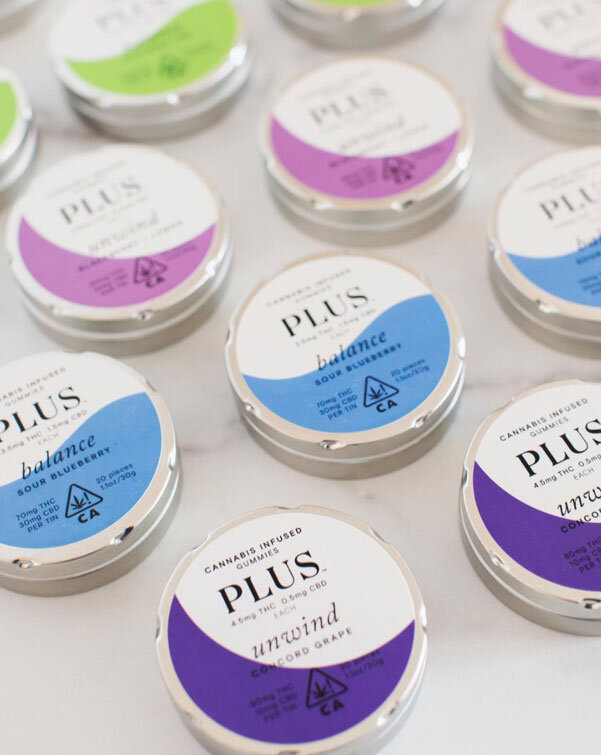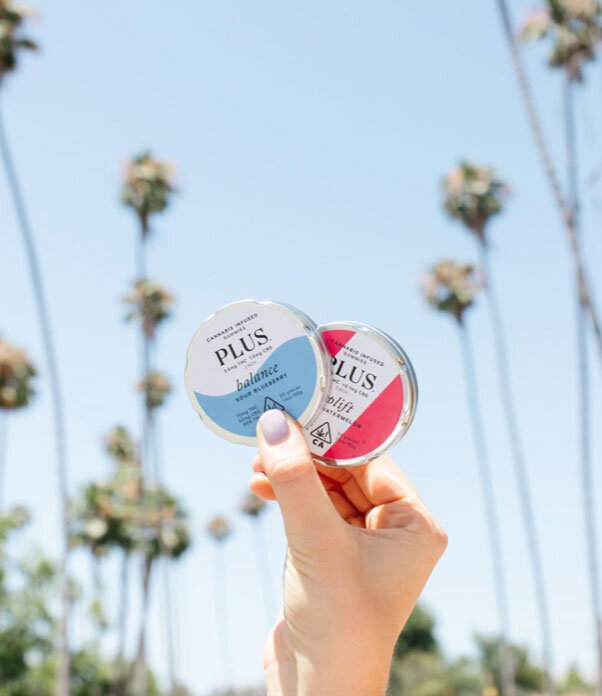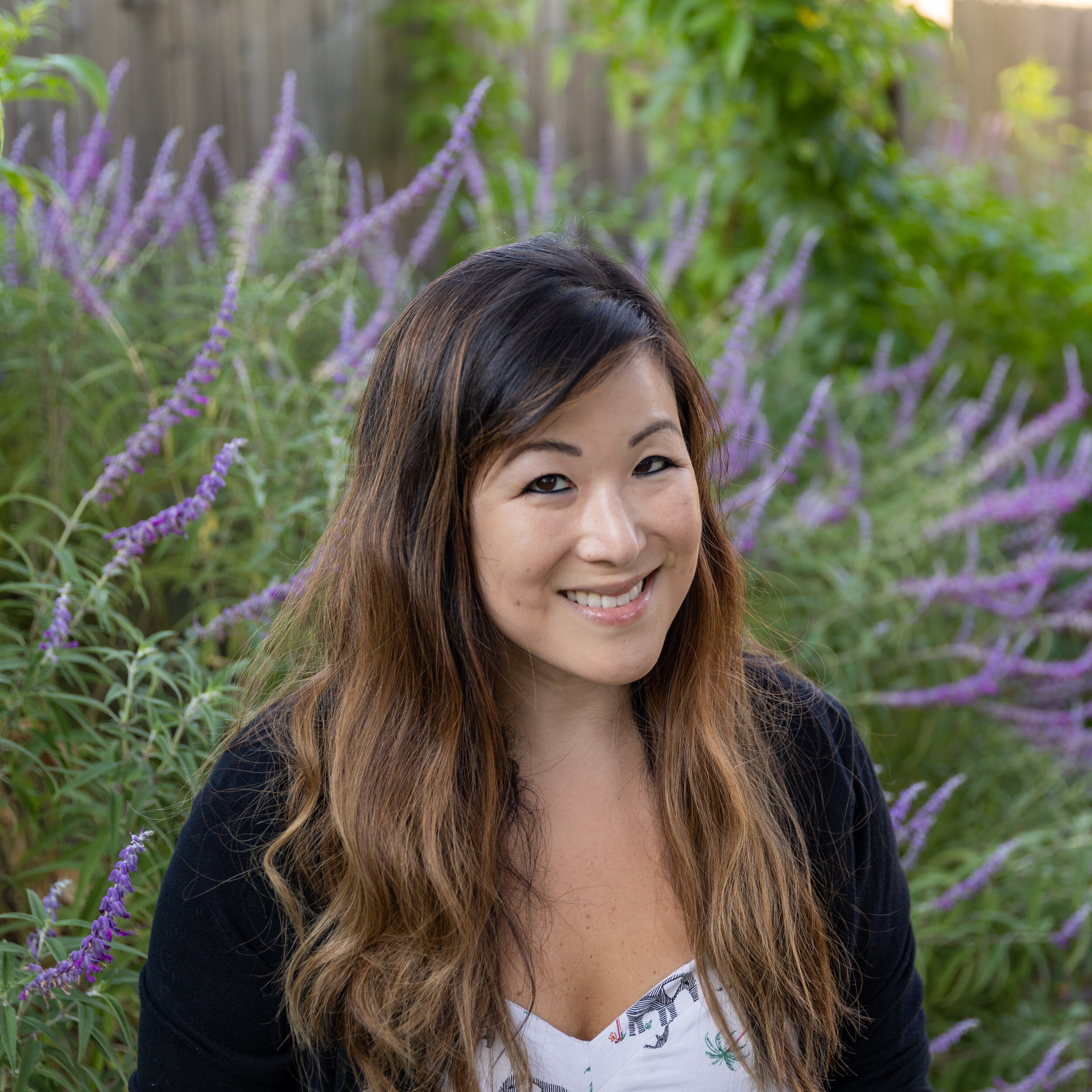AACE INTERVIEW: Jennifer Tung of PLUS
One saving grace, however, is that many people in legal cannabis genuinely want to address social equity and criminal justice. It makes me feel good, for example, to know that righting past wrongs is actually deeply personal and important to senior management at PLUS.
Wow, I am constantly in awe of our community and its members, there are so many strong voices out there that are setting paths for other’s to follow and one that AACE is honored to interview is Jennifer Tung of PLUS.
A bit about Jennifer: Jennifer Tung works as the Chief Risk Officer and General Counsel of PLUS Products Inc., producer of California's top-selling cannabis gummy edibles. She manages all of PLUS’ legal/regulatory, compliance, and risk functions, and also sits on the executive committee of the National Cannabis Roundtable, a think tank for responsible cannabis policy based out of DC. Prior to PLUS, she was Lead Counsel for Payments at Facebook, and later a Director at Uber, advising on payments issues in the US, Latam, EMEA, and APAC. A native of Maryland, Jennifer holds degrees from Stanford University and Harvard Law School. - Ophelia Chong
How have your views on cannabis changed?
Growing up, I was always in favor of descheduling cannabis. I’ve just never personally viewed it as a harmful drug. That “gateway drug” notion from D.A.R.E. never really stuck, you could say. But two views have emerged really strongly since I entered the cannabis industry 15 months ago:
First, with PLUS being a California company, I am disappointed in the lack of support for our regulators to crack down on illicit market products. The effect in California has tellingly been a huge stagnation for the legitimate cannabis companies trying really hard to play by the rules, since the unlicensed providers have allowed consumers to purchase in the black/gray market rather than the regulated market.
The dangers to law-abiding businesses are obvious, but what often gets overlooked is the danger to all Californians of unregulated, untested (or worse, known test-failing) products being made available for consumption. Look at the vape crisis – the perpetrators are largely black market providers, who, because they aren’t subject to regulatory scrutiny, are able to put product into the stream of commerce with impunity. I think if California cannabis regulators aren’t given the support to begin cracking down on illicit shops, our next public health crisis caused by bad actors in cannabis is just around the corner.
Second, I have become a little disillusioned/cynical about the peoples’ motivation for participating in the industry. Speaking broadly, there are a lot of relentless capitalists getting richer off of cannabis, and who view cannabis primarily as a profit vehicle rather than as a way to genuinely help people bring balance to their lives. Meanwhile, people from communities disproportionately affected by the war on drugs remain incarcerated en masse for minor cannabis offenses. It’s like the realization that the war on drugs was a failure has just led to rich people making more money, rather than a righting of the wrongs its ethos created.
One saving grace, however, is that many people in legal cannabis genuinely want to address social equity and criminal justice. It makes me feel good, for example, to know that righting past wrongs is actually deeply personal and important to senior management at PLUS. Even though it’s a tough time to be in the industry now, especially in California, we want to not only survive and thrive but also to develop a double bottom line where we value social impact and our contribution to humanity.
How did you enter the cannabis industry?
Before joining PLUS, I was a FinTech lawyer in Silicon Valley. I had met Jake Heimark, the CEO of PLUS when we both worked at Facebook in 2010/2011. Being a payments lawyer, my background is in financial regulation so I have extensive experience in Bank Secrecy Act / Anti-Money Laundering issues, while Jake worked in payment risk.
Jake was interested in getting into cannabis, and after Colorado decriminalized, he had an idea for cannabis banking risk management. In early 2015 he invited me to come with him on a trip to Denver and pitch his idea for a cannabis-centric payments compliance program to banks or credit unions.
As you know, banking is to this day a huge problem for the cannabis industry. Financial institutions aren’t really able to support accounts opened by cannabis business owners; because cannabis is still a Schedule 1 drug federally, even in states with legal adult-use or medical cannabis the risk of seizure of funds that are proceeds of crime (as cannabis money is viewed federally) is high. Until cannabis is descheduled, or legislation like S.A.F.E. is passed, cannabis companies and their service providers will continue to deal with the dangers of dealing in large amounts of cash, and neither they nor customers will have access to the card networks or other basic payments infrastructure in this country.
At the time, I wasn’t in the position to leave my job and found a startup. My husband and I left California and moved to Texas (sorry Austin…..yes, we are part of the problem of Californians flooding our fair city). Meanwhile, PLUS moved from Colorado to California after Prop 64 passed, and pivoted from payments compliance to edibles – first gum, then gummies.
More than three and a half years after that first banking scouting trip, Jake reached out to me again and said that PLUS had grown to the point where they were ready to bring on their first lawyer. I was very happily employed at Uber at that time, but couldn’t pass up the opportunity to build and run a team of my own. So I left my wonderful boss and team at Uber and jumped right into the roller coaster that is cannabis at the end of 2018.
Did you do research into cannabis before entering?
Yes, I looked at PLUS and learned a bit more about the legal market (not the easiest for me since I was a resident of Texas, which has definitely NOT decriminalized adult-use and visited California really only for work). I had been peripherally aware of legislation that had floated around for years regarding opening banking to cannabis, but I looked into the status of current legislative proposals and their likelihood of passing. And I was introduced by a legal colleague to a good friend of his who runs a medical cannabis company in Maryland; as we both have ADHD we discussed the rewards and challenges of working in an industry as tumultuous as is cannabis.
The one thing I wish I could have researched more was the effects of cannabis from a medical perspective. It’s bewildering that in this day and age in America, medical studies about the impact of THC and/or CBD are still impossible to design while cannabis remains Schedule 1. I hope that will change and change quickly. You can’t have sound regulations about cannabis until you have a good foundational scientific understanding of its effects and utility, and we can’t get the latter until cannabis medical research can be conducted freely.
How does your family feel about your cannabis businesses?
Oh Lordy. On one hand, they were proud I would run the legal team and be an officer, but they knew I had been very happy with my team at Uber and were worried I made a mistake leaving. They still don’t really know much about cannabis, so they still view it as an illegal and/or harmful drug. I don’t ever express any frustration I ever feel in my day-to-day work to my mom because she will immediately butt in “Aiya! Why don’t you stop being a drug dealer and go back to being a taxi driver then!”. Um…. like, okay, mom.
What is the most frequent question you are asked about cannabis?
By far it’s “when do you think cannabis will stop being federally illegal?”
What is your favorite way of ingesting cannabis?
Edibles. I have asthma, so though there are some terpenes that are supposed to function as bronchial dilators, I just can’t smoke anymore. I also don’t love tinctures because I’m kind of a wuss and they’re so bitter! I don’t mean to sound like a shill for my company obviously, but I love our gummies’ flavors and textures, the precise microdosing of our products, and how discreetly they can be ingested.
Where do you see the cannabis industry in five years?
I’ve already mentioned I have only a notion of how long it will take for cannabis to be decriminalized at the federal level. I do know for sure that even though federal de-scheduling would be beneficial for participants in the industry, each jurisdiction will still face its own struggles in adapting and refining an appropriate and efficient regulatory regime. In other words, regardless of the federal question, there will always be difficulties in deciding how to regulate effectively at the state or local level.
That said, I believe that we can make good progress in five years. I can only draw on my experience in FinTech, which has evolved dramatically in the last decade in response to new payment technologies. I noticed there was a massive increase of sophistication in the regulators’ knowledge and understanding of these technologies (and thus their abilities to properly apply square regulations to circular businesses) from the beginning of the 2010s to the end.
Why do you think some Asians are against cannabis?
I think some people in our communities have not yet had good opportunities to be educated as to the potential physical benefits of cannabis, and therefore may hold onto traditional views of marijuana as a vice. For example, ‘marijuana’ or ‘hemp’ in Chinese is 大麻 (dà má), literally ‘big numb.’ Fun fact: the character 麻(má) is also used in the Chinese name for leprosy 麻风病 (má feng bìng). Just going by word association, cannabis in Chinese sounds ominous AF. And as the cannabis industry knows, a rose by any other name doesn’t in fact smell as sweet; we don’t often use ‘marijuana’ in our nomenclature, for example, to avoid the historical stigmatic associations of stoners, reefer madness, etc.
I think maybe another reason is that our communities have been less ravaged by the opioid epidemic than have others. I don’t know if I’m right by the numbers, but my impression is that nationally a non-insignificant number of recent pro-cannabis converts were tipped into backing cannabis as the lesser of two evils compared to opioids. This inference makes it all the more critical that we deschedule cannabis in order to facilitate medical studies about its long-term effects. My husband and all my brothers-in-law are veterans; if in the future doctors will be prescribing cannabis to vets with the same readiness as they did in the recent past with opiates, then we better damn well make sure we have the data to back our assertion that cannabis can make make peoples’ lives better.




